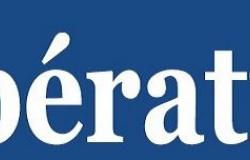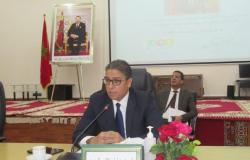Supporters of Real or Barça, displaced from separatist regions, artists or intellectuals: in Tbilisi, pro-EU demonstrators display their plurality by marching in small groups, united in their standoff with the Georgian government, accused of authoritarian drift .
Sunday afternoon, around a hundred fans of Real Madrid and FC Barcelona, recognizable by their scarves and t-shirts, rushed from the Philharmonie to rally the Parliament.
A Clasico in sight? No. “We are protesting together against our pro-Russian government,” Giorgi Mantidze explains to AFP, a Barça flag on his shoulders.
Their passion for the two greats of Spain has little to do with the political crisis that this Caucasian country is going through since the party which leads it, Georgian Dream, claimed victory in the legislative elections of October 26 – qualified rigged by the opposition – and that the government decided at the end of November to suspend all EU accession negotiations until 2028.
But since “Barça and Real Madrid fans are used to confronting each other”, underlines Ana Tepnadze, 18 years old, Barça supporter – while her mother leans towards Real -, they show here that they “like (their) country above any club.”
“Our country needs unity. So, for us, it’s a sort of showcase to set an example for others,” says Shota Natenadze, 29, who brandishes his Real Madrid scarf.
Business school students, artists, archaeologists or even veterinarians: this Sunday, around ten groups bringing together demonstrators under a specific identity marched through the streets of the capital.
Their rallying point remains the Parliament, symbol of power accused of wanting to bring Georgia back into Moscow’s orbit. And their demand for new elections.
– Medieval costume –
Artificial intelligence engineer Shota Natenadze was already there on Friday with other Georgians working in his sector.
A way of showing the “plurality and diversity” of people who “despite their difference of opinion, can stand up for a common goal”, he underlines.
Displaced people from Abkhazia, a separatist province whose independence Moscow recognizes and where it has maintained a military presence since a short but bloody war with Georgia in 2008, chant the names of towns in their region as part of Georgian territory.
A few meters away, Akaki Makatsaria, 27, who came with the group of artists, stands out with his medieval helmet, his studded leather vest and his “Byzantine style” armor armbands.
“The illegitimate government says that it is the only one defending Georgian culture, that Europe is full of degenerates who want to destroy Georgian culture”, but it provides “no support” for “protecting the historical culture of Georgia”, affirms this fan of historical reconstruction.
– “Identification game” –
More discreet, Nino Kavshbaia, 25, came with fans of the game show “What? Where? When?”, created in the USSR in the 1970s and considered a hobby of intellectuals.
Friday, on the first day of these small gatherings scattered around the capital, it was with her colleagues that this lawyer demonstrated.
For those who “try to be here every day”, this “little identification game” makes the exercise “interesting”.
Because we need to re-motivate ourselves after more than two weeks of daily protests which have so far not caused any change in power.
He had several opposition leaders arrested and vowed to crush, if necessary with force, a movement that he accused of being fomented from abroad.
Police arrested more than 400 people, the majority of whom claimed to have suffered violence, according to the NGO Social Justice Center, which provides legal aid to detainees.
Draped in his Barça flag, Giorgi Merebashvili believes that it is “important to diversify” the movement for more “flexibility”. So the police “cannot control all the small demonstrations in the city,” he says.
To last, summarizes this high-tech employee, opponents must “find new methods”.





